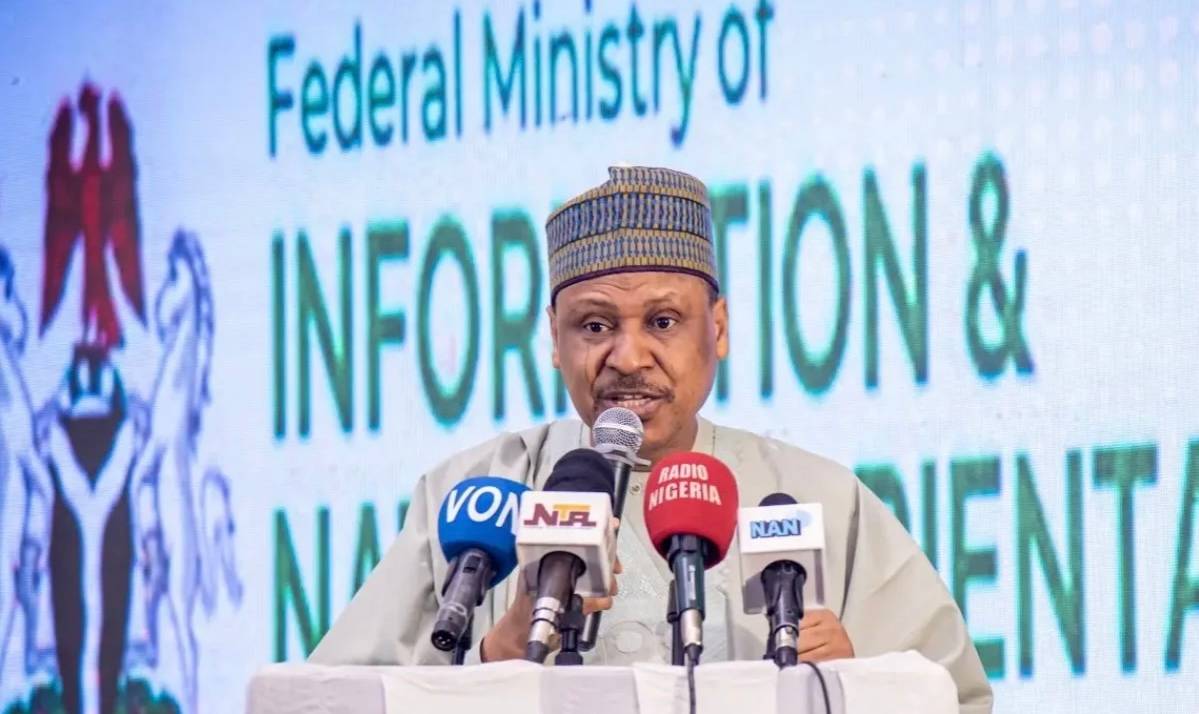By Segun Ayobolu
It is unsurprising that perhaps the key and most urgent goal of the President Bola Tinubu administration for 2025 is to reduce the inflation rate from the current 34.6% to 15% and especially to effect a drastic cut in the existentially threatening prices of staple food items and essential drugs. The removal of the fuel subsidy as one of the administration’s main economic reform planks in May last year had led to a spiralling of pump price of fuel with associated consequences for transport costs and the escalation of prices of basic food items such as garri, yams, bread, rice, beans, vegetables, tomatoes, eggs, groundnut oil, bananas among others beyond the reach of millions of Nigerians.
While the administration and many economic experts believe that the elimination of the fuel subsidy and the merger of the hitherto existing parallel exchange rate markets are necessary surgical economic policies which are in the long run interest of the economy, the short term effects are excruciating and President Tinubu is right in according priority to urgently easing the pains being borne by the vast majority of Nigerians. For, as the great economist, John Keynes, famously observed, in the long run we are all dead.
Understandably, elements of the opposition, most of whom are yet to come to terms with the outcome of the 2023 Presidential election, the most bitter in our political history, blame Tinubu’s policies for the cost of living hardships. They have even dubbed the President as ‘T-Pain’ depicting one who takes sadistic pleasure in inflicting agony on others. It does not matter to them that all the major candidates promised to remove the subsidy during the campaigns with Mr Peter Obi of the Labour Party emphatically asserting on national television that he would do so “on day one”.
Those who heap all the blame for our current economic travails on the Tinubu administration are also unconvinced that the economic challenges we confront today, the country’s continued debilitating romance with poverty, backwardness and underdevelopment, are inevitable fallouts of the persistent dysfunctional policies of successive post-independence administrations that have kept the economy disarticulated, dependent, stunted and unproductive. But for short periods such as the mid 1970s to early 1980s when the country experienced the so-called oil boom or the early 1990s during the windfall from oil revenues as a result of the gulf war, for instance, the majority of Nigerians have lived in penury and hardship despite the country’s abundant resource endowment.
It is however in the nature of politics that if the ruling All Progressives Congress (APC) had been in opposition, it would most likely have also put whatever government was in power on the defensive in a similar manner. Rather than listen to ‘stories’ from the administration, most people want to see the impact of concrete policies that ameliorate their materially enervating conditions. Hence, PBAT’s avowal in his New Year message that “In 2025, our government is committed to lower these costs by boosting food production and promoting local manufacturing of essential drugs and other medical supplies”.
Indeed, as far back as June last year while speaking as a special guest at the 142nd meeting of the National Economic Council (NEC) in Abuja, in an indication of the fierce urgency his administration attached to the hunger question, the President called on governors to embark on massive food production in response to rapidly rising food prices. Since state governments control the land, he asked the governors to consult on how to achieve food affordability and revert to him within seven days. In his words, “Time is humanity’s most precious asset. You can never have enough of it. It is getting late. We must produce the food our people eat and it will require coordination and intentionality between members of the NEC”.
It was obviously in recognition of the need to urgently bring down food prices that the administration announced the waiver of import duty as well as zero per cent Value Added Tax (VAT) on basic food items, a policy which was supposed to last between July and December last year. The food items covered by this policy included maize, husked brown rice, wheat, grain beans and millet. A memo from the federal Ministry of Finance on the policy stipulated that “The importation of these items shall be limited to investors with milling capacity and a verifiable backward integration programme for some of the items”.
Surprisingly, despite the high expectations engendered by this policy announcement, it was not implemented within the specified timeline. Consequently, the phenomenon of food inflation worsened. A 50kg bag of rice, for instance, that cost about N30,000 before the fuel subsidy removal, rose to N100,000. The Federal Capital Territory (FCT), Abuja, and at least 19 other states reportedly recorded food inflation rates above 40 per cent in 2024 while the country’s food inflation soared to 42.29 per cent by November last year.
By December last year, the Nigerian Labour Congress (NLC) and the Organized Private Sector (OPS) decried the inexplicable non-implementation of this policy, which would have gone a long way to cushion hardships associated with unaffordable food costs. Actualizing this duty waiver policy on essential food items at least in the first quarter of this year will be imperative to achieving the goal of significant reduction in food prices. The increase in allocation to agriculture from N362.94 billion in 2024 to N825.6 billion in the 2025 budget illustrates the seriousness accorded the sector by the administration. If the equally substantial enhancement of the allocation to security in this year’s budget helps to consolidate on current substantial gains in safety of lives and property across the country, this will also positively impact food productivity.
PBAT no doubt recognizes that no meaningful progress can be made towards achieving higher food production and consequent lower prices without the active involvement and participation of the state governments and local government councils. This must have informed his attendance at the NEC meeting referred to earlier to mobilize the support of the governors. Shortly after that interaction between the President and the governors, the Southwest Governors Forum under the Chairmanship of the Lagos State governor, Mr Babajide Sanwo-Olu, announced that the six states in the region would work in concert to massively boost food production there.
Unfortunately, not much has been heard or seen of this joint action plan since then although some of the states have been making impressive strides in boosting agricultural productivity. A clear forerunner in this regard is the Ekiti State governor, the unassuming, ever modest but silently achieving Mr Biodun Abayomi Oyebanji. Some of the landmarks recorded in Ekiti in agriculture under Oyebanji’s leadership include the establishment of Ekiti State Agro Marshalls to secure farmlands; clearing and ploughing of about 1000 hectares of land for 400 farmers under the tractorization subsidy scheme; disbursement of N177,937,500 for land clearing under the Youth in Agriculture Scheme; engagement of 913 youths on different crops cultivation under the Bring Back Ekiti Youth to Agriculture partnership with YSJ Farm Limited; the laying of pipes for farm irrigation at Erifun, Ado Ekiti and the completed or ongoing construction work on no less than 23 critical rural road projects linking farming communities to urban markets.
In an interview with one of this newspaper’s columnists, Abiodun Komolafe, governor Oyebanji said, “Interestingly, we’re renovating most of Awolowo’s farm settlements in the state. It’s remarkable that Awolowo had such vision back then, and it’s our duty to build upon his legacy. Building on our existing efforts, we plan to establish six more farm settlements across Ekiti in 2025. This expansion will not only provide decent accomodations for our over 1000 employed youths in the sector but also enable them to live on-site, work efficiently and earn a decent income”.
But there is ultimately no alternative to the six states in the Southwest coordinating their efforts to leverage on their strengths to massively mobilize and empower youths in the region to take advantage of abundant fertile land and favourable climate to engage in massive food production. And the same goes for the country’s other geopolitical zones. Incidentally, the First Lady, Senator Oluremi Tinubu, has deemonstrated, through her Renewed Hope Initiative Agricultural Support Programme, how the energies of diverse segments of the population can be harnessed and channelled towards the goal of achieving higher food productivity. One strand of her agricultural support scheme is the Identification, training and empowerment with N500,000 each of at least 20 farmers in each of the six geopolitical zones to produce, cultivate and preserve different food crops.
There is also the Renewed Hope Initiative ‘Every Home a Garden’ competition through which women are encouraged to plant a garden at home with the aim of ensuring the availability of food in every home. The initiative’s slogan is “#FoodOnEveryTable” and the winner goes home with N20 million. The Renewed Hope is partnering with the Federal Ministry of Agriculture and Natural Resources to identify, train and empower young farmers and 75% of these will be female and 25% male farmers. There is also the Renewed Hope tant Initiative Food Outreach through which food staples such as rice, beans, spaghetti, garri among others are distributed to widows, people with disabilities, special schools and other vulnerable groups across the country.
The drive to produce food massively and thus banish hunger in Nigeria must be prosecuted as an all out war in which failure or defeat is not an option. The federal government, sub national units, schools, non-governmental organizations, religious bodies, military and para military organizations including the National Youth Service Corp (NYSC) can be mobilized to achieve this objective within specified timelines. The increased Naira revenues accruing to state and Local government councils in the wake of the removal of fuel subsidy should be utilized to strengthen agricultural productivity. True, the Tinubu administration has sustained and improved on the attainments of the preceding President Muhammadu Buhari administration in diversifying the economy and enhancing agricultural performance.
Despite the persistence of degrees of insecurity in some conflict-afflicted parts of the country, experts report a measure of improvement in crop harvests in 2024. Yet, transportation of perishable food items from areas of production to market destinations remains a logistical nightmare with the resultant large scale food spoilage. The problem with Nigeria is certainly not food scarcity but how to get agricultural produce to designated markets on time and at affordable costs.
The Nation newspaper columnist, Sanya Oni, makes a pertinent point in this regard when he notes that “the other lacuna that has remained somewhat intractable is a reliable and efficient system of logistics on which our hordes of farmers can count on… Here’s my candid advice on the matter: our old, disused, rail network might seem obsolete for moving people in this day and age; there can be no denying its utility in moving cattle and produce particularly in the circumstances that the country has found itself. With good thinking, right investment and proper management, Nigerians might yet discover the gold on those old tracks”. This makes eminent sense to me and I hope the Ministers of Agriculture and Transportation can explore the possibilities of this suggestion.
Culled from The Nation













